20. Some Books I Haven't Shared Yet But Really Should Have...
The best (and the most confusing) reads of the year so far plus a few upcoming releases I've got my eye on.
Hello there,
The almost-two-months-long hiatus wasn’t intentional but I’ve never been one for speaking for the sake of it and, like a lot of people, this year has made even the most established habits and routines feel almost impossible at times. Organising my thoughts so that I might write coherently about what I’ve read has absolutely felt impossible at times.
I have no words for the fact that we’re still witnessing the genocide and ethnic cleansing of the Palestinian people, or that the current war in Sudan is still ongoing after more than a year and a half, or that every single day - even with the eyes of the world on them- the perpetrators of both atrocities (and numerous others) ceaselessly commit acts of unfathomable depravity and brutality; or that all of this is happening with the ongoing support and complicity of those in the most powerful positions, as well as those who simply believe that the lives of certain people really are worth less than theirs. I’m not sure what else there is to say but, at this point, saying something at every available opportunity feels like the very least we should be doing.
Palestinian writer and journalist, Mariam Barghouti shared the following words in a post just yesterday and I think they’re worth reflecting on in relation to whatever it is we are doing in our own lives- and what we might do collectively- to push back against the normalisation of this cruelty:
“…we can’t consider sharing and documenting on social media as enough. This is merely a documentation and amplification process. Actual impact requires pressure and motion. It requires changing ways of life to consume less and more consciously, to stop the daily motion as we know it and force ourselves- and the world- to pause and change direction. It requires all of us to move together in a guided compass of ending this aggressive extermination campaign on Gaza and Palestine as a whole.”
The images below were created by the incredibly talented Strudelwort , and I was so moved by her words that I wanted to share them here for anyone who might need the reminder:
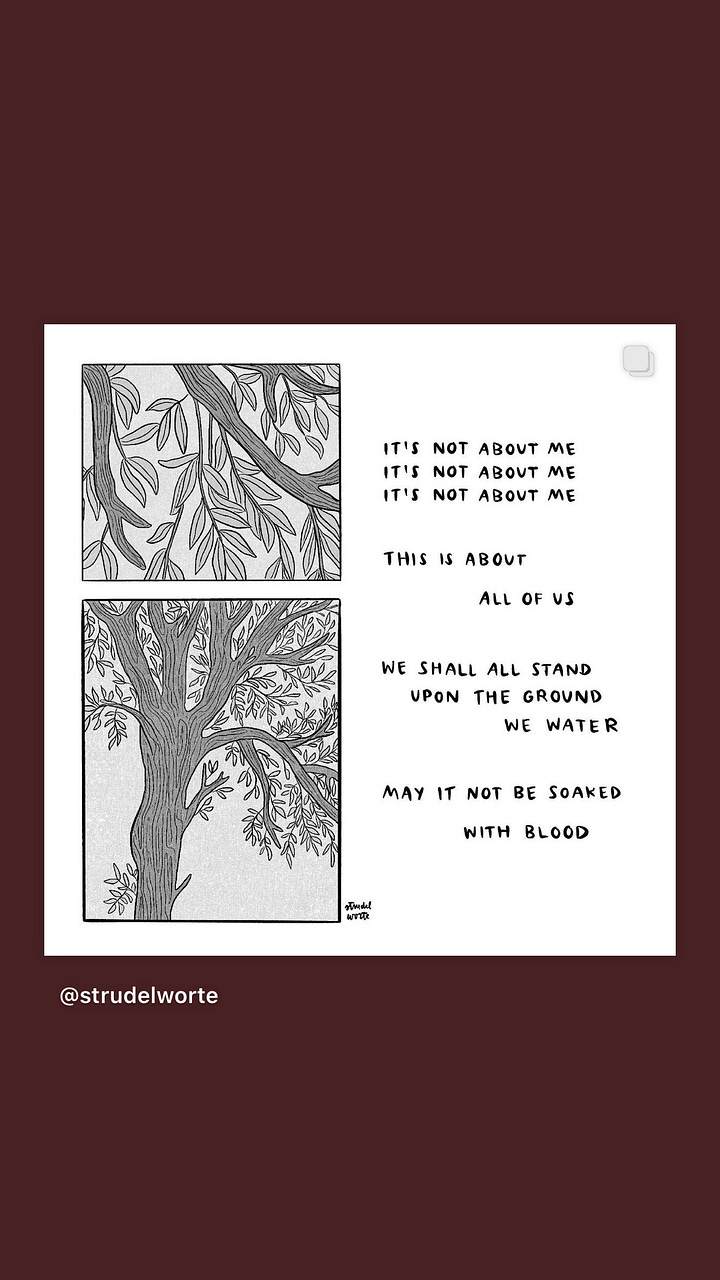

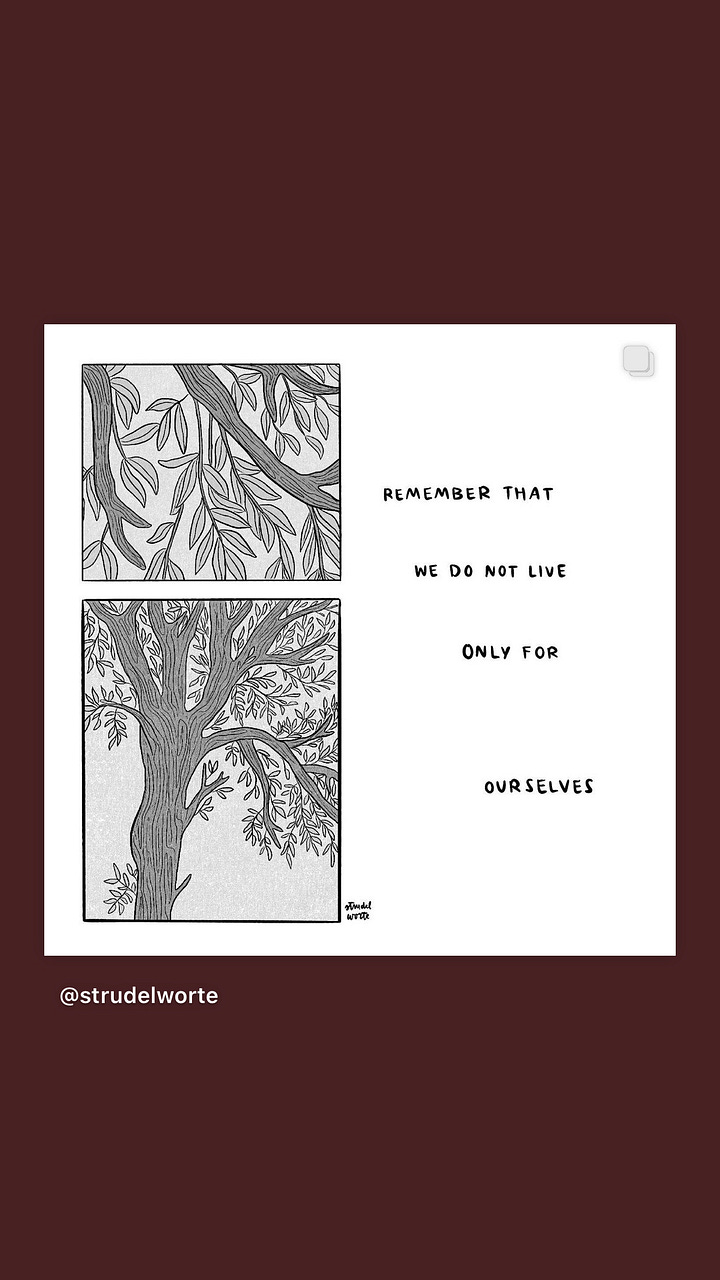
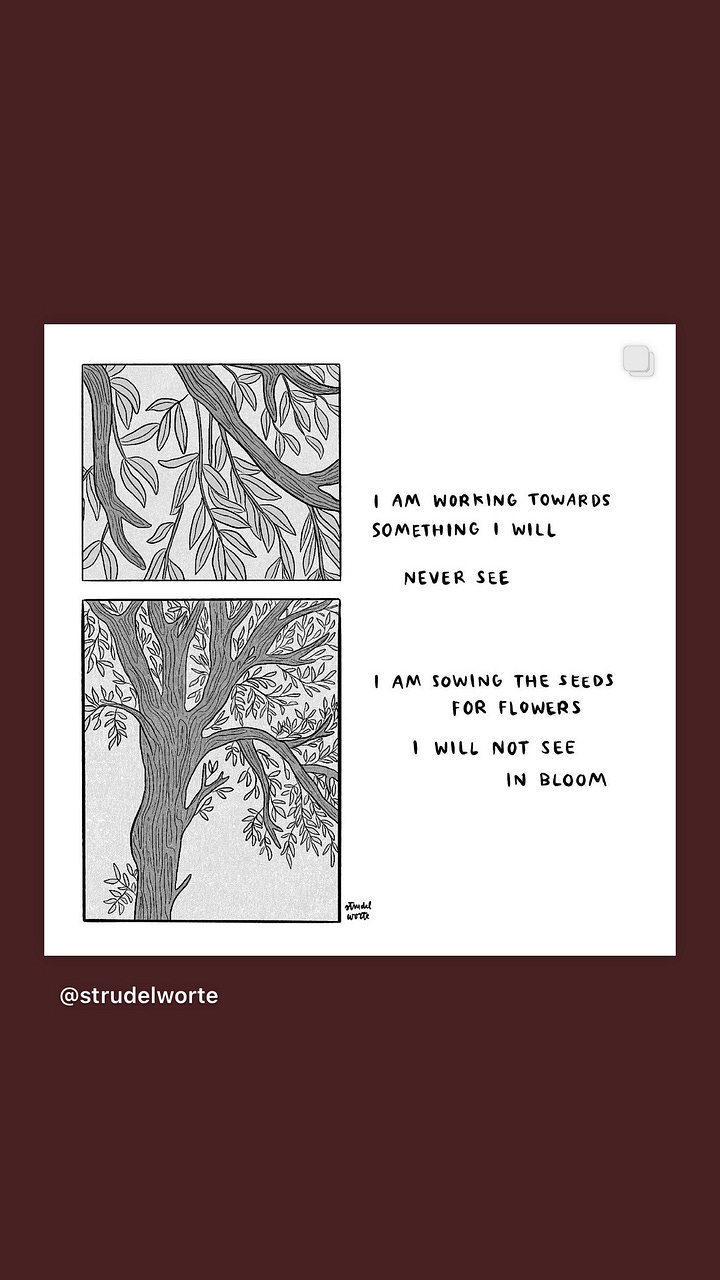
The Books
Before I get into the books I haven’t mentioned here yet, I wanted to highlight a few novels I’ve read this year that I’d absolutely recommend but have already written about previously. You can read my thoughts on The Parisian by Isabella Hammad and The Singularity by Balsam Karam here:
And you can find my thoughts on The Watermelon Boys by Ruqaya Izzidien and A Mouth Full of Salt by Reem Gaafar here:
The Recommended (in reading order)
Dogs at the Perimeter by Madeleine Thien
“…Before, in Canada, he never wondered how many deaths we can survive, how many deaths we can bear, how many deaths we deserve. He doesn’t know what to do with the children who have become as blank-eyed as the adults…”
Several years ago I attempted to read Madeleine Thien’s 2016 Booker Prize shortlisted novel, Do Not Say We Have Nothing and couldn’t quite click with it enough to finish it, however, when I came across a second-hand copy of her 2011 novel, Dogs at the Perimeter, I was intrigued and willing to give her writing another go. It turned out to be a great decision.
The novel centres the Cambodian genocide (1975-1979) and characters who are haunted by the horrific experiences they’ve tried to escape. While it’s a fairly short book, its structure does demand that you pay close attention as it moves between the past and present and a number of different perspectives and identities, all of which illustrate the multigenerational impact of genocide wherever it occurs. This is a powerful novel, made even more so by the absence of graphic depictions of violence; rather, the reader is invited to consider and imagine for themselves what the experience is of a child orphaned by genocide, or what it means to experience starvation and illness and watch those around you succumb to preventable disease, and particularly harrowing is the thought of a reality in which you live your life deprived of any closure you might be afforded by confirmation that those you love are either dead or alive. Lastly, it raises the question of how a person might exist in the world surrounded by people who that witnessed their persecution and simply continued living, unaffected.
Edo’s Souls by Stella Gaitano (translated from the Arabic by Sawad Hussain)
A few (several?) months ago, I tuned into a conversation between The Candid Book Club, and Sudanese authors Leila Aboulela and Reeem Gaafar, during which Leila Aboulela briefly mentioned Edo’s Souls by Stella Gaitano and I was so intrigued that I ordered a copy immediately.
Stella Gaitano was born in Khartoum to parents parents who were originally from what is now South Sudan but sought refuge in the northern city during the civil war of the 1960s. Aspects of this background are reflected in the novel which is why I mention it here. Edo’s Souls is primarily told from the perspective of Lucy, a young woman from the south who, with her new husband, seeks refuge in the north to escape war but finds that, as is so often the case, war is quite impossible to escape. Motherhood, sisterhood and womanhood are central themes in this multi-generational, multi-narrative novel and, while war and political upheaval are core themes, I would hate to leave you with the impression that this is what the book is about. Ultimately, it is a story about family, community, legacy, and friendship and the ways they help us to survive in a world so fraught with tragedy and danger. I really would love to see more eyes on this one.
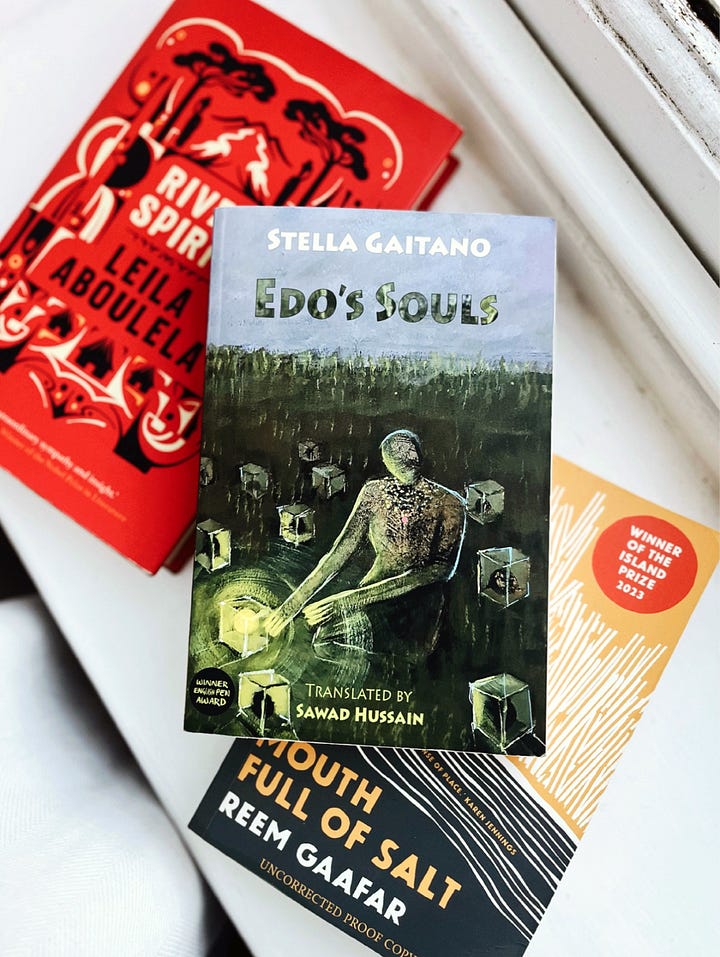

Prophet Song by Paul Lynch
I distinctly remember the quips about the number of authors named Paul who were longlisted for the Booker Prize in 2023- the year this novel took the title- and, while I haven’t read the entire shortlist, or any of the other books written by a Paul, I can see why Prophet Song won (not that I think prizes actually count for a whole lot but that’s a conversation for another day…)
The book, which is set in Ireland, follows the Stack family whose lives are upended the day husband and father, Larry Stack is arrested and, essentially, forcibly disappeared. In an interview with The Booker Prizes, Lynch stated that he took his inspiration from ‘the problem of Syria – the implosion of an entire nation, the scale of its refugee crisis and the West’s indifference’ so it makes sense that nothing that he depicts in this novel feels new or imagined– it has happened and is happening and this is something Lynch clearly understands as he described Prophet Song as an attempt at ‘radical empathy’: “To understand better, we must first experience the problem for ourselves. And so I sought to deepen the dystopian by bringing to it a high degree of realism. I wanted to deepen the reader’s immersion to such a degree that by the end of the book, they would not just know, but feel this problem for themselves.”
While I think that Prophet Song is an excellent book, I did find myself struck by its relative popularity when it can’t really be said that other authors haven’t written great books exploring similar themes. However, I think one of the reasons for this actually lies in Lynch’s above remarks. A familiar face and a familiar name has brought these realities home to familiar shores and, suddenly, for readers who might have ordinarily viewed these horrors as a distant impossibility (for themselves), the possibility is brought uncomfortably close to home.
While we’re on the subject of books with thematic similarities, I have to mention What Strange Paradise by Omar El-Akkad, which is a book I read a few years ago but still find myself thinking of every once in a while. If you’ve read and appreciated one of these books, I think you’ll appreciate the other.
Sharon and My Mother-in-law: Ramallah Diaries by Suad Amiry
The first of two books by Palestinian author Suad Amiry that I’ve read this year and one that proved to be a great introduction to her writing.
Written as a series of vignettes, the book charts life in the West Bank under Israeli occupation in a way that illustrates the impact of this reality on even the most mundane aspects of daily life. In this way, some of the most stifling aspects of this reality are communicated to the reader, aspects that might otherwise be overshadowed by depictions of shocking violence and brutality.
Amiry’s colloquial and, at times, comedic delivery was a pleasant surprise and, if anything, it made for an even more compelling read. The book very effectively draws attention to the plight of the Palestinian people and the pervasive impact of the occupation, while also serving as a reminder that there is more to Palestinian life than the suffering inflicted on them.
Mother of Strangers by Suad Amiry
Set in Jaffa between 1947 and 1951, Mother of Strangers is a novel based on the true story of young love disrupted by the Nakba, which altered the direction of the lives of 15-year-old Subhi and 13-year-old Shams, as well as those around them and the generations to follow.
lham Reads shared a post on Instagram recently with some interesting critique of this book and, on reflection I’m particularly inclined to agree with her thoughts on the way the novel attempts to integrate the ‘young adultesque love story’ into the historical/ literary fiction story it is primarily marketed as. However, I also appreciated how this love story brought readers back to the core truth of how lives were disrupted in every sense (and in ways not always considered) and how the course of so many lives have been forever altered as a consequence of the occupation. Amiry takes a very intimate approach to her portrayal of the Catastrophe, while also integrating oft-overlooked aspects of Palestinian history and I don’t hesitate to recommend it.
Thirteen Months of Sunrise by Rania Mamoun (translated by Elisabeth Jaquette)
This is such a short collection of stories that it can easily be read in a day or even a few hours and, while I read it long enough ago that the details of the stories now elude me, I found it such a pleasure to read. Written by Sudanese author Rania Mamoun, these contemporary tales look at the lives of Sudanese people in the most every day sense and that is one of the things I appreciated so much about it.
If you like stories that feel intimate, observant, and enriched by their insightful depiction of the mundane, you’ll very likely appreciate this collection.
The Forbidden Notebook by Alba de Céspedes (translated from the Italian by Ann Goldstein)
Originally published in 1952, this novel opens with the impulse purchase of a notebook by Valeria Cossati, a wife and mother in post-war Rome who, like so many women, finds her life revolves around the needs of her husband and children. Valeria starts keeping a diary in secret- stealing moments late at night or when the house is quiet to write down all that concerns her but, as she delves deeper into her thoughts and feelings, she finds that she is increasingly dissatisfied (or increasingly aware of her dissatisfaction) with the role she has so carefully cultivated and everything begins to unravel.
There is something so suffocating about this novel, which I think has to do with the way Valeria’s role- and even her existence- is taken for granted by those who benefit from it the most. However, there is also something really moving about the depiction of this woman- married with two almost grown-up children- who hadn’t yet accessed her own thoughts and desires and how, once she does, it inevitably changes everything. I enjoyed this book a lot and I think that fans of Elena Ferrante or Natalia Ginzburg might appreciate her writing too.
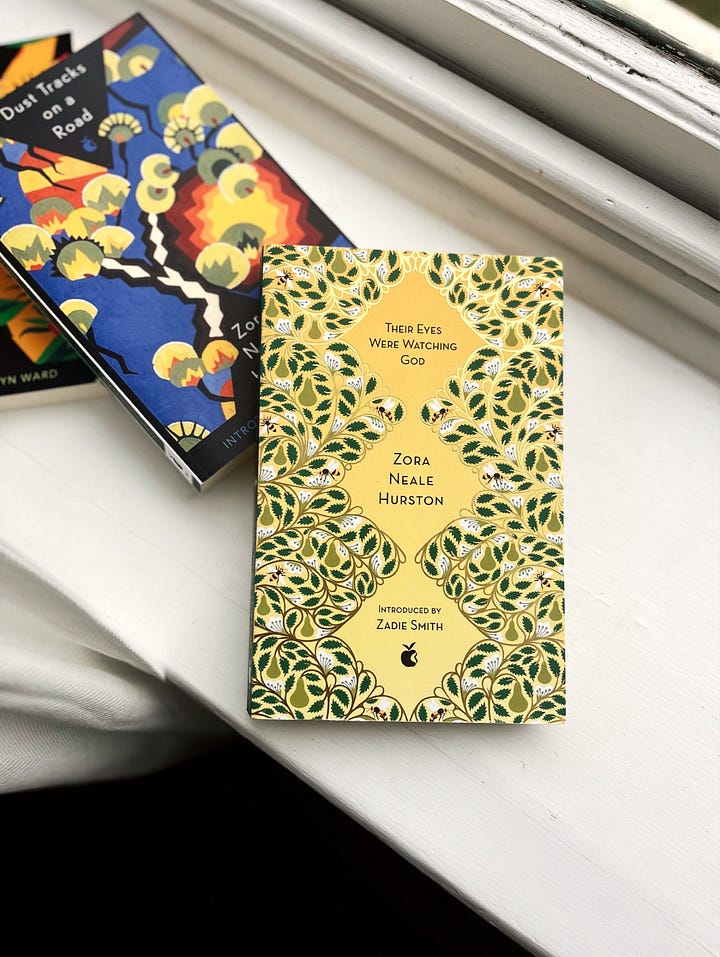
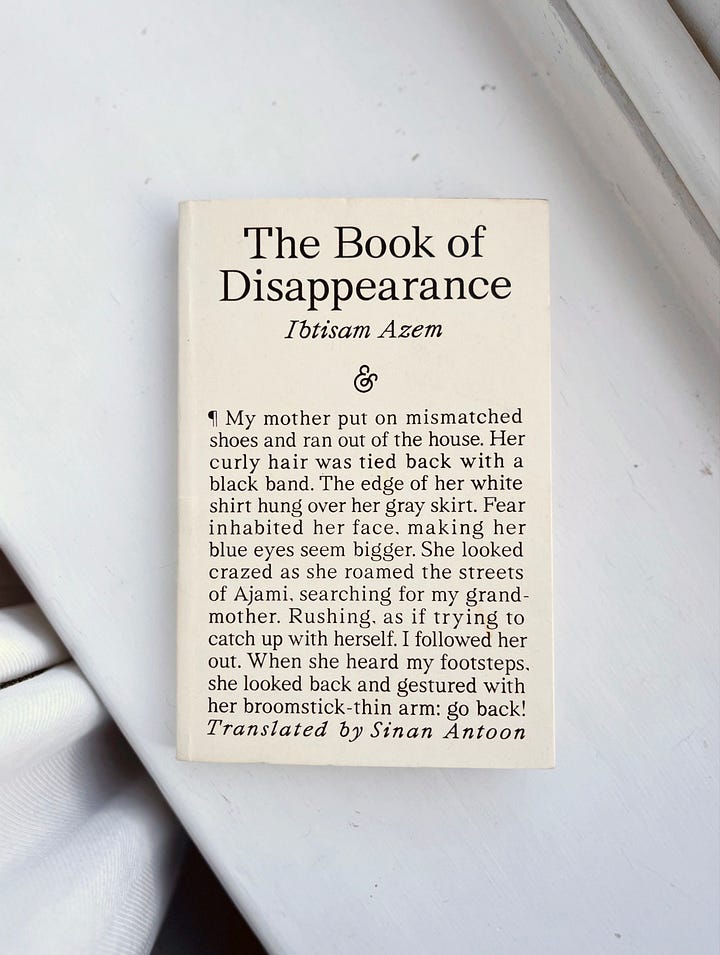
The Book of Disappearance by Ibtisam Azem (translated from the Arabic by Sinan Antoon)
“Survivors are the loneliest. Despite all the stories, it’s difficult at times for me to imagine what you felt those first days after the nakba. When the extent of the damage left by the flood became clear. That is how I imagine the scene. A scene that has yet to end.”
Undoubtedly one of my favourite books of the year, Ibtisam Azem introduces readers to an occupied Palestine in which, overnight, all the Palestinian inhabitants simply vanish. What follows this perplexing event is a brilliant depiction of the way in which a state founded on such violence and mistrust can never be safe for any of its citizens.
Told from the alternating perspectives of Alaa - one of the disappeared Palestinians, and his ‘friend’, Ariel- an Israeli and ‘liberal Zionist’, The Book of Disappearance is a gut-wrenching, incredibly clever portrayal of the realities of occupation and colonisation.
As the novel unfolds, readers see how, in real-time, the remaining inhabitants so readily stake claim to what the Palestinians have left behind –even as they contemplate the strange disappearance and consider what it might mean for them, their priorities are disturbingly (and realistically) clear.
Ariel’s characterisation illustrates the justification of occupation and the pervasive denial of the true extent of its horrors by those who consider themselves ‘liberal’ in their outlook and position. Ariel can’t hold space for Alaa’s evident pain and loss because to do so would mean reckoning with the unjustifiable part he has played in the oppression of the Palestinian people.
Primarily via excerpts from Alaa’s journals (which, rather invasively, are being read without his permission by Ariel), readers hear stories of Alaa’s grandmother and wider family, further illustrating the multi-generational and ongoing impact of the occupation. In sharp contrast with some of the harsher aspect’s of the novel, Alaa’s grandmother’s voice, as well as both characters’ reflections and experiences of grief, love and home provide a welcome warmth and softness and I found these sections especially beautiful.
Their Eyes Were Watching God by Zora Neale Hurston
I’ll keep this brief because this novel is over eighty years old and I’m sure already well-known to many of you but Zora Neale Hurston’s decision to write a novel about a young woman who decides on the kind of love she wants and goes after it- regardless of how many times she is encouraged to settle for less in the name of security, or how many times she is told that the love she feels can’t be trusted- is so incredibly bold.
I loved reading this book so I include it here simply to say that if it’s one you’ve been meaning to read, I think you’ll find it worth your time.
Honestly, this section could have been so much longer because there are several books I’ve read more recently that I would love to share with you. Perhaps I’ll do a part two at some point but, in the meantime, let’s move onto…
The Ones that Left Me Wanting… And a Little Confused.
I want to make it clear that these aren’t books I disliked. I include them because they’re books I was excited about but they just didn’t land with me as I hoped they would. I also include them because I think they are well-written, unique, understandably have their fans, and because I would still want to read more from the authors. I would also love to hear your thoughts on these two if you’ve read them!
The Coin by Yasmin Zaher
With this one I’ve come to the conclusion that it’s a very interesting story and I was certainly captivated enough to want to keep reading, however, these tales of women unravelling in a way that is provocative, stifling, disturbing and, at times, a bit gross, don’t often work their magic on me and, for the most part, I am probably not this book’s most ideal reader.
However, if this sounds like the kind of book you usually love, you’ll probably be a big fan of this one. The blurb suggests that it’s for fans of Ottessa Moshfegh and I’ve seen numerous comparisons to My Year of Rest and Relaxation, which I know has quite the fan base but I’ve never been interested in reading it so maybe there’s a reason this one didn’t fully win me over. If you’ve read both books and have any thoughts on the comparison I would love to hear them.
With all that said, there is definitely much to appreciate about this book’s commentary on capitalism, consumerism, The American Dream, the price some are forced to pay for the privileges of others, as well as a unique take on generational trauma particularly that associated with displacement, loss and grief. No regrets, would absolutely read more from Yasmin Zaher.
Time of the Flies by Claudia Piñieiro (translated from the Spanish by Frances Riddle)
As a huge fan of Claudia Piñiero’s previous two Charco Press releases (Elena Knows and A Little Luck), no one is more disappointed to place this latest offering in this category.
Now what I will say is that I’m a little annoyed at myself for missing the memo that Time of the Flies is actually a companion novel to her novel ‘All Yours’ and I really wish I had realised this because I’ve had a copy of that book for months and might have appreciated Time of the Flies more had I read that one first. Apparently they can be read separately and in any order but I still think it might have enhanced the reading experience for me.
So what didn’t quite work for me? First of all, it felt unnecessarily long. By contrast, both Elena Knows and A Little Luck are half the length (or near enough) and I feel like she worked such magic with both- they are brilliantly structured, concise, emotive and still feel unsparing.
The reason for the longer length is, I assume, at least in part due to the other aspect I find myself undecided about: the chorus of flies. It’s not the use of a chorus itself I take issue with but more the fact that the flies did feel like they were incessantly buzzing. I appreciated the way Piñiero draws on other relevant feminist texts throughout to support their discussions but, after a while, it felt excessive and being constantly taken out of the main story to hear the flies’ commentary on the events unfolding felt a little jarring. This novel leans a little more into the crime novels Piñiero is known for and, while I’ve been curious to read some/one of those simply because of how much I love her other work, the crime genre has never really been my thing…
For me, this novel’s appeal lies in its depiction of friendship, forgiveness and tenderness. This is what kept me reading and made time I spent with it feel worth it. I suspect other people might appreciate this book for the very reasons I didn’t so I’d say that if you’ve loved Piñiero’s work previously, Time of the Flies is absolutely still worth exploring. With that said, if you’ve yet to read any of her writing, I’d say start with Elena Knows and A Little Luck because I recommend both of those with ease.
-For more regular reading updates (she says) you can also find me on Instagram.
-If you’d like to support these letters in some way, you can buy me a ‘coffee’ here - it will always be appreciated.
-If you aren’t subscribed but you like the idea of receiving these letters straight to your inbox, you can do so for free and I’d love that too.
Currently Reading
This list is longer than it should be but the ones I’m actually picking up and haven’t just neglected half-way through are Animal Joy: A Book of Laughter and Resuscitation by poet and psychoanalyst, Nuar Alsadir, Claire Keegan’s Foster (this one is a reread) and the short story collection, Dead-End Memories by Banana Yoshimoto, which I spontaneously purchased after the blurb almost made me shed a tear. Having read the first story, I’m feeling hopeful…
Upcoming Releases
A full English translation of the Granada trilogy by Radwa Ashour (translated by Kay Heikkinen) will be published on the 5th November and I am very excited about it.
“It is 1492, and the keys to Granada, the last Muslim state in the Spanish Peninsula, have been handed over to the Christian king and queen: the final vestiges of this Arab kingdom in Europe are swept away… Radwa Ashour’s sweeping trilogy, set over one hundred years against the backdrop of the great historical events of sixteenth-century Europe, tells the story of those who remained in Andalusia, of the individuals who struggled to maintain faith and hope in a possible future. It narrates a community’s effort to comprehend what has happened to them, of their valiant but ultimately unsuccessful efforts to resist the destruction of their identity.”
This is a book I have been wanting to read for a while now so I’m ready to get hold of that one ASAP.
Lastly, for the poetry fans, I am eagerly anticipating the publication of Mosab Abu Toha’s second collection, Forest of Noise: Poems and Theresa Lola’s second collection, Ceremony for the Nameless, both of which are published in the UK on the 7th November.
What are you currently reading? Are there any autumn/winter releases you’re looking forward to?
Until next time,
Tasnim

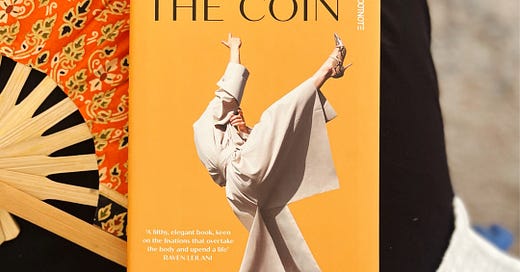







How lovely to receive thank you Tasnim
I missed this newsletter and am so grateful you're back (at whatever pace you chose!) and would love a part 2 😃 I added Edo's Souls and Thirteen Months of Sunrise to my tbr IMMEDIATELY. I don't know if I'm in the headspace for The Book of Disappearance but taking note of that too. I didn't like Mother of Strangers (for the reasons Ilham articulated) but I do want to read her other book as well